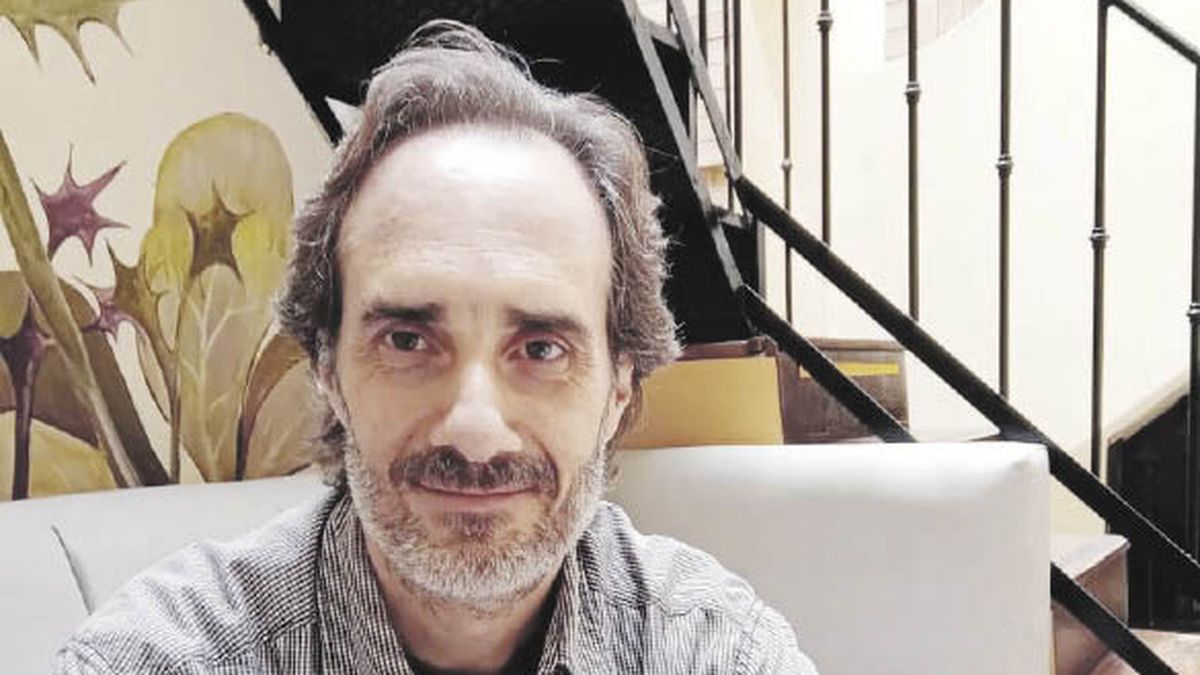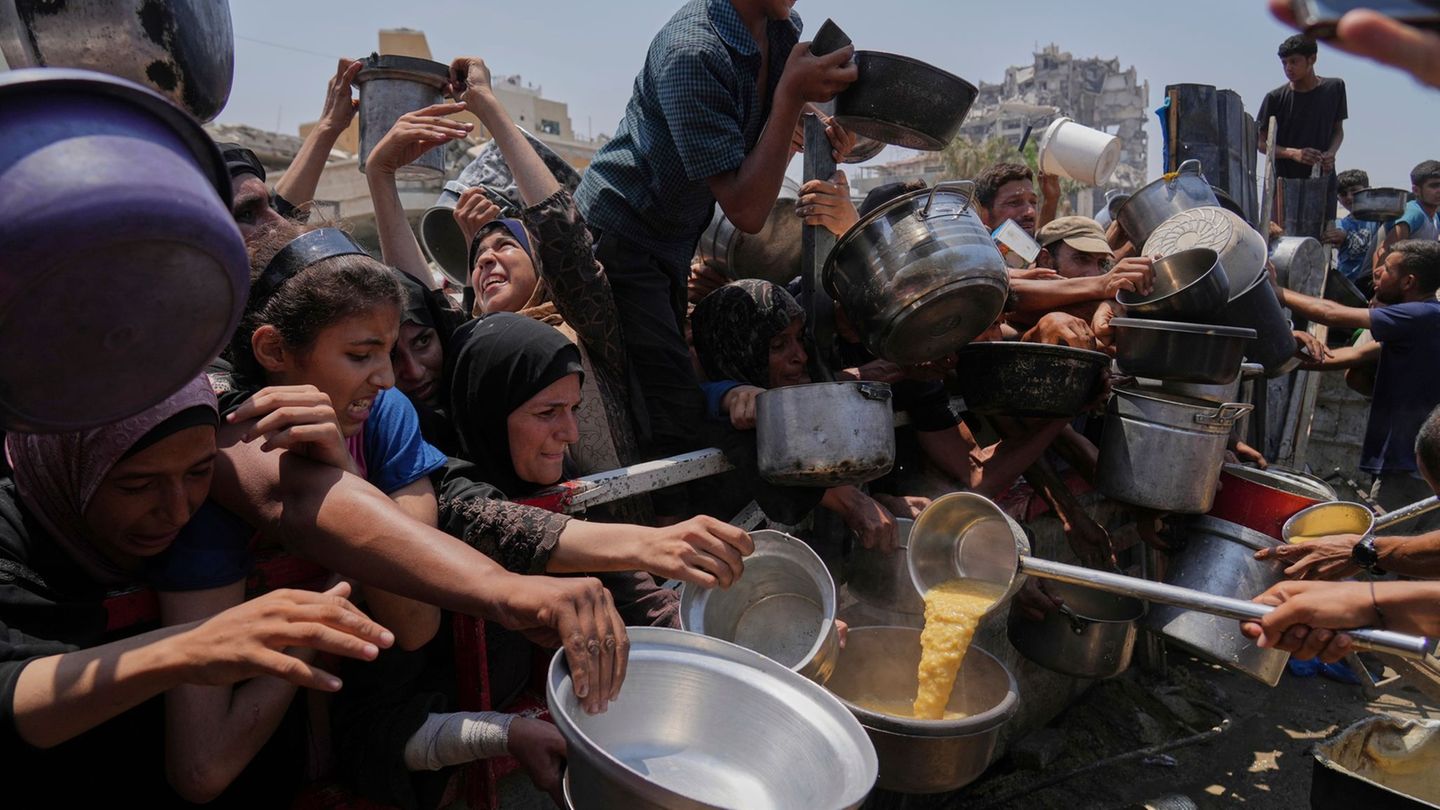Javier Argüello: What is the limit between reality and fiction? If it makes sense, it’s fiction, because reality doesn’t. If it makes sense, someone gave it to you; the loose facts don’t make any sense. In “Being Red” I did not invent anything, in that sense it is non-fiction. The novel is supposed to be a genre of fiction, but that is very blurred, the literature of the self drew a new limit.
Q.: You sought to move away from “About Majorana”, your novel about that brilliant quantum physicist who strangely disappeared…
JA: “Being red” is not remote, it also has the idea that reality is constructed. It seems that talking about physics and communism has nothing to do with it, for me it does. Physics shows that a particle is not important, what matters is the system it has with others. If reality is a construct, let’s stop complaining about reality, let’s see how we are building it. Therefore, let’s not change the world, let’s change ourselves who are the ones who build the world. I return in another way to quantum theory.
Q.: What was the starting point?
JA: Asking my parents why they weren’t resentful of a social and political project that failed, what had happened to them with the broken dreams of a generation. They answered me: we are not resentful because we have no one with whom. I wanted to understand how his life was and incidentally understand myself, one understands oneself through others, although that was not the goal.
Q.: There is something romantic about the meeting of your parents, the poor boy and the rich girl on the prow of a ship…
JA: Yes (laughs) Titanic… My father (Omar José Argüello), who studied sociology and belongs to the first batch of sociologists from the UBA, in 1959 was sent by the Party to the Meeting of Communist Youth in Vienna. My mother’s aunts send her to see Europe.
Q.: Your father’s story is a Dickens novel…
JA: He was born in a small town in the Province of Buenos Aires that had two mud streets. They were very poor. His destiny was to be a farmhand. He had gone to third grade. One day a woman passes by and says to my grandmother: this boy is kind of intelligent, don’t you want him to continue studying? And that’s how my father went to live in Lanús with that lady, the caretaker of a poor children’s home, and her son. In summer he returned to visit his family.
Q.: Did that experience lead you to identify yourself with communist ideas?
J:A.: That experience led him to become disenchanted. His affinity was not ideological but of concrete reality. Those who spoke were ideologues and not people from the lower social class, and he started from reality to think about theories.
Q.: Your parents participated in the inauguration of Salvador Allende in Chile.
JA: My father had been recommended for a postgraduate course at FLACSO and Ricardo Lagos, who was the general director, proposed that he direct the Sociology degree. It was the time of Popular Unity, and they were very happy to experience that event. This is how I was born in Chile. My father went to work at the United Nations, which allowed us to escape from two dictatorships, the one in Chile and the one in Argentina, and travel the world.
Q.: On the other hand, he is the wealthy family on his mother’s side, he is the nephew of a Nobel Prize winner…
JA: More than wealth was culture. They didn’t care about those things. My uncle, Manuel Mora Y Araujo, tells that his uncles, Miguel Ángel Asturias and Blanca Mora y Araujo, took him to a Literary Festival in Africa, and introduced him to Neruda. The poet tells him you have to go see such a painting in such a museum. From there, Manolo keeps asking to go where Neruda sent him, until Asturias tells him to forget it, Pablito says anything to the boys. No importance was given to the condition reached, being a writer, in itself goes well or goes badly because the idea was not the business. I find myself in my father who was leaving the United Nations to go play soccer in the commune of Pudahuel, in my grandfather, a sports journalist, who became a Peronist, renouncing all ideas of family, who liked boxing, soccer, and talks with colleagues.
Q.: “Being red”, does it refer to proposals by Camus, Todorov and David Rieff about the need to return to a rationalist humanism?
JA: We must face the crisis of the systems that we thought were the best. And there is fear for what is coming. There is no deception of the ideas, there is deception of the human being. The idea of worrying about the interests of all over the individual ones is very old, and Confucius raised the commonwealth. If the attempt at a communist utopia failed, that does not mean stopping thinking about the ideal of the common good, that human beings can be better and be better. The proposal is not political, it is to think about what must be done so as not to sink. Being red has nothing to do with revolutionary flags but rather with resuming ideals of humanism, of empathy as the only salvation in a world that is swinging dangerously towards social chaos and moral anomie.
Q.: What are you up to now?
JA: In “Four Quantum Tales”, which will appear in early 2023.
Source: Ambito
I am an author and journalist who has worked in the entertainment industry for over a decade. I currently work as a news editor at a major news website, and my focus is on covering the latest trends in entertainment. I also write occasional pieces for other outlets, and have authored two books about the entertainment industry.




